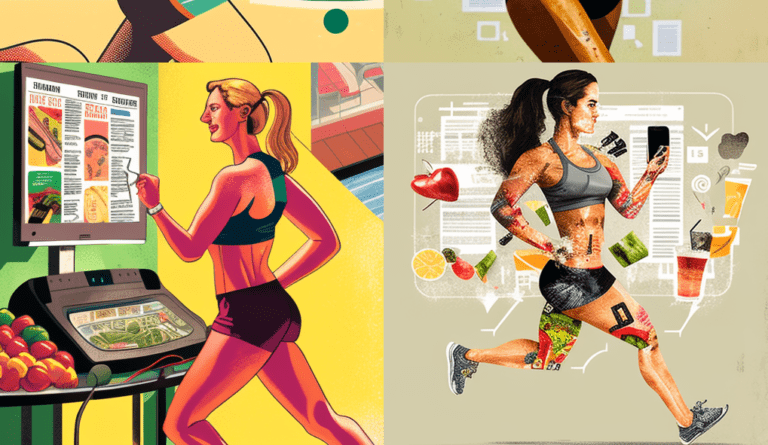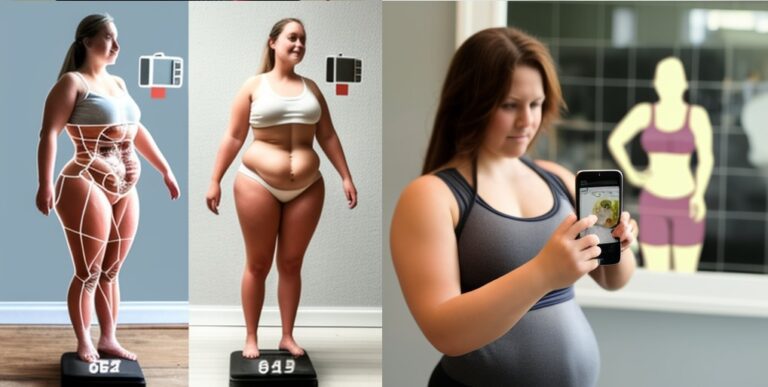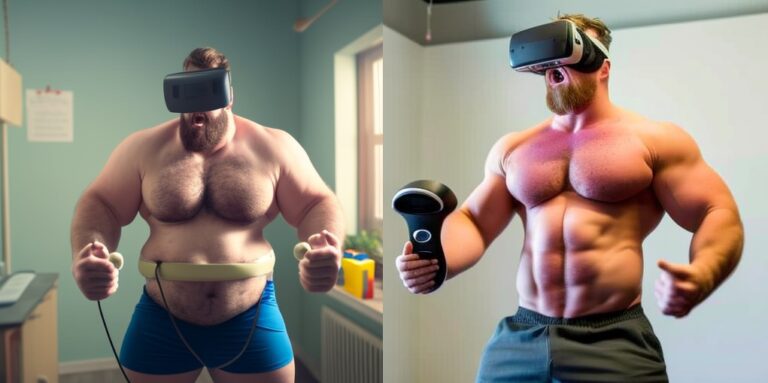How can technology help with weight loss?
“Unlock the power of technology to achieve your weight loss goals with ease. Learn about the various ways in which technology can help you track your food intake, monitor your physical activity, and receive personalized diet and exercise plans. Discover the benefits of online support groups, telehealth, wearable technology and virtual reality for weight loss. Achieve your desired weight and take control of your health with the help of technology.” How can technology help with weight loss
Technology has come a long way in recent years, and it has now become a valuable tool in the fight against obesity. With the help of technology, it is possible to track your food intake, monitor your physical activity, and even receive personalized diet and exercise plans. In this blog post, we will explore some of the ways in which technology can help with weight loss and how you can use it to achieve your goals.
One of the most important aspects of weight loss is monitoring your food intake. This can be a challenging task, especially if you are not familiar with nutrition labels or portion sizes. Technology can help by providing you with apps and devices that make it easy to track your food intake. Many apps, such as MyFitnessPal, allow you to scan barcodes on food packages, and the app will automatically add the nutritional information to your diary. This makes it easy to keep track of your calorie intake and ensure that you are not overeating.
Physical activity is another essential component of weight loss. Technology can help by providing you with devices such as fitness trackers and smartwatches. These devices can track your steps, monitor your heart rate, and even provide you with personalized workout plans. Some fitness trackers also have the ability to connect to a smartphone app, which allows you to track your progress and set goals.
While tracking your food intake and physical activity is important, it is also essential to have a personalized diet and exercise plan. Technology can help by providing you with apps and programs that analyze your data and create a customized plan for you. For example, some apps will analyze your food diary and recommend healthy meal options based on your dietary preferences. Similarly, some fitness apps will recommend exercises based on your fitness level and goals.
Another way technology can help with weight loss is by using virtual reality. Virtual reality can be used to create a more interactive and engaging workout experience. This can help make exercise more enjoyable and help you stay motivated. Some virtual reality apps can also be used to simulate outdoor activities such as hiking or rock climbing, which can be a fun and exciting way to burn calories.
Technology can be a valuable tool in the fight against obesity. By tracking your food intake, monitoring your physical activity, and receiving personalized diet and exercise plans, you can achieve your weight loss goals with ease. Additionally, virtual reality can make exercise more enjoyable, helping to keep you motivated. With the help of technology, you can take control of your health and make lasting changes to your lifestyle.
One of the most challenging aspects of weight loss is staying motivated. Technology can help by providing you with online support groups and communities. Social media platforms like Facebook and Instagram have a variety of weight loss groups that you can join. These groups provide a platform for people with similar goals to connect and support each other. Additionally, you can also find online forums and communities that are dedicated to weight loss, where you can connect with others who are going through similar struggles. These groups can provide a sense of accountability and motivation, making it easier to stick to your weight loss goals.
Another way technology can help with weight loss is through telehealth and virtual consultations. With the rise of telemedicine, it is now possible to consult with a doctor or a nutritionist without leaving your home. Telehealth consultations can be especially beneficial for people who live in remote areas or have mobility issues. Virtual consultations provide a convenient way to receive personalized advice and support from medical professionals. This can help you stay on track with your weight loss goals and make any necessary adjustments to your diet and exercise plan.
Wearable technology is another way to track your weight loss progress. Smartwatches, fitness bands, and smart clothing are becoming increasingly popular as they can provide real-time data on your body’s physical activity, heart rate, sleep patterns and even your stress levels. This data can help you understand your body better and make adjustments to your lifestyle accordingly. With the data collected by wearable technology, you can also set more accurate goals and track your progress more effectively.
In conclusion, technology has come a long way in recent years, and it has now become a valuable tool in the fight against obesity. With the help of technology, it is possible to track your food intake, monitor your physical activity, and even receive personalized diet and exercise plans. Additionally, technology can also provide online support groups, telehealth and virtual consultations, and wearable technology to help with weight loss. With the help of technology, you can take control of your health and make lasting changes to your lifestyle.











